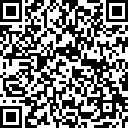4.9a Yahusha - Lost? and DISCOVERED at Passover
Introduction to this study:
This video is a quick puzzle piece of the full study below
This video is a quick puzzle piece of the full study below
This is the Covenant Calendar which aligns perfectly with His ministry throughout the four Gospels. The calendar details in the Gospels can no longer be glossed over.
It is time to take very careful note of everything, including any deviation from “one set of wording” to “another set of wording.”
For example: If the context is “Passover of the Jews” – it is exactly that – a Passover timing of the Jews’ lunar calendar. If the content does not specify anything related to the Jews’ it is then time to check and see if the context is around Yahusha and His disciples. It is also important to remember the Gospels give information about “believing Jews” and “unbelieving Jews”-
without telling the reader “which is which” – so it is up to the reader to figure out the puzzle. Do remember, Joseph of Arimathaea and Nicodemus were “believing Jews” and were very aware of what was going on – good students of the Torah, and Covenant Calendar timing!
With this in mind, there are many witnesses in the Gospels that show beyond any doubt the exact timing between the lunar based calendar and the Covenant Calendar.
This is ONE of those studies. It focuses on Yahusha’s attendance to His Passover at the age of 12 – remember – when He was left behind for 3 days. As you go through the study, learn to pay attention and pick up the details that are bound to expose the counterfeit calendar of the unbelieving Jews – the very leaders that “took away the key of knowledge” from the common person so that they could not understand how to count & calculate Yahuah’s festal calendar for themselves.
Think about the following questions as you brace yourself to meet the challenges of this study:
- Mary & Joseph attended the Passover at Jerusalem every year, but the year that Yahusha attended at age 12, they started their return home without Him. When He was finally discovered after 3 days, what was Yahusha’s answer to them, and did they understand His words? (See Luke 2:49-50.)
- Where was Yahusha found after the 3 days and what was He doing?
- In Luke chapter 2, is there a difference of “context” between the wording of: a) according to the Torah; and 2) according to the practice of the festival? Was Luke trying to get our attention with his very careful wording of these events?
- According to Luke chapter 1, when does life begin: 1) at the time of birth?; 2) at the time of conception? What would this have to do with Covenant Calendar timing?
- According to many commentators, there is substantial documentation that the year of Yahusha’s birth could have been anywhere from 3 BC to 6 BC. This Gospel study will prove the exact year of Yahusha’s Passover at age 12. Could one then determine the year of His birth?
- There is only one year that fits the very specific criteria for Yahusha’s age 12 Passover. What is the specific Gospel calendar language to unlock this puzzle of the exact year?
- There are many different types of lunar calendars all the way from the return of the exiles in 457 BC up to Luke and Paul’s documentation in 57 AD. Some lunar calendars were calculated according to the crescent moon before the equinox, and some were calculated by the crescent moon after the equinox. For Yahusha’s 12 year Passover, which type of lunar calendar were the unbelieving Jews using then? Do you wonder if that is the same lunar calendar they were using during Yahusha’s ministry many years later? What about the lunar calendar that Luke and Paul record almost 30 years after the crucifixion?
- Some believe that a “High Sabbath” is always a “feast Sabbath” and the “weekly Sabbath” sharing the same day/date? Is that the case in this study?
- Upon what day of the week was Yahusha’s Covenant Calendar Passover in this study?
- After going through this study, see if the phrase “and a little child shall lead them” has a different meaning for you. Who was that “little child” and who was He leading? … and how do you think those around Yahusha reacted to “that leading”? Did His example have anything to do with exactly when to observe the festivals as given in the Torah?

